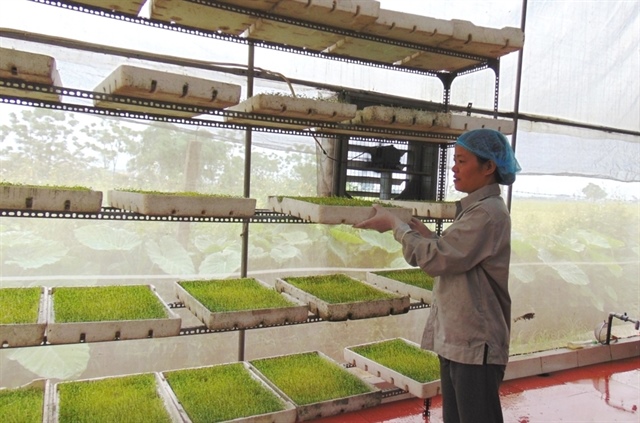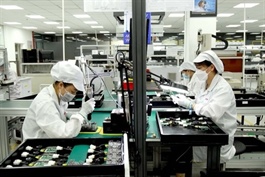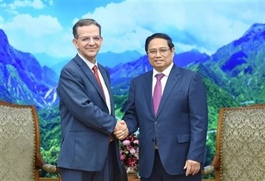Hanoi boosts collective economy
Hanoi boosts collective economy
The plan emphasizes the need for greater participation by the Vietnam Fatherland Front and other political and social organizations in promoting the collective economy.
Hanoi will improve the operations of 80 cooperatives in rural areas as part of its plan to develop the collective economy and cooperatives by 2025, recently approved by the city's People's Committee.

Tree nursery at Thanh Ha Agricultural Production and Service Cooperative, Thuong Tin District. Photo: Lam Nguyen/The Hanoi Times |
This plan aims to promote the growth and quality of collective economic organizations, create jobs, increase the income of members and workers, and ensure social security.
The city will address the challenges of the collective economy while guiding and encouraging the dissolution of non-operational cooperatives to make way for new ones. The plan is to develop at least 50 new cooperatives that will join the city's Cooperative Alliance.
Hanoi also aims to attract young workers to the remainder of 30 cooperatives, and 10 cooperatives will receive funding to lease and set up offices and showrooms. In addition, the plan aims to help 250 cooperatives in trade promotion and market expansion.
The city's goal is for each cooperative to generate an average turnover of VND3 billion (US$11,927) per year, with an average worker income of VND65 million (US$2,552) annually and an average profit per cooperative of VND220 million (US$8,648).
Relevant agencies will support the establishment of 100 cooperatives and two cooperative groups, aiming for 65-70% of cooperatives to operate at a good or satisfactory level.
To support these efforts, training and capacity building programs will be organized for 47 classes.
Hanoi currently has the highest number of cooperatives in the country, with agricultural cooperatives making a significant contribution to the city's Gross Regional Domestic Product (GRDP).
To make these goals a reality, the Hanoi People's Committee has outlined key strategies, including increasing public awareness and implementation of the 2023 Law on Cooperatives and strengthening training and capacity building for management personnel.
The committee has also urged the Hanoi Cooperative Alliance and various departments and localities to innovate and refine policies to support and improve the effectiveness of the cooperative sector. In addition, it stresses the need for greater participation by the Vietnam Fatherland Front and other political and social organizations in promoting the collective economy.
Nguyen Trung Thanh, Deputy Chairman of the Hanoi Cooperative Alliance, said the organization will continue to play a key role in developing the collective economy and cooperatives. It plans to strengthen cooperation with departments and local governments to guide and support cooperative growth.
"Moreover, we will proactively propose solutions to the challenges facing the cooperative sector to achieve the goals set for 2025," he said.



























